Introduction to the characteristics of authentic blue mountain coffee bean producing areas? What is the CIB Coffee Authority in Jamaica?

The Jamaican Blue Mountain Coffee Industry does not belong to the "genius" type that came out of nowhere. It has gone through twists and turns to become the Blue Mountain Coffee that people say today. Behind the success of Blue Mountain, it is inseparable from an association. Because of the establishment and operation of this association, Blue Mountain Coffee is famous all over the world.
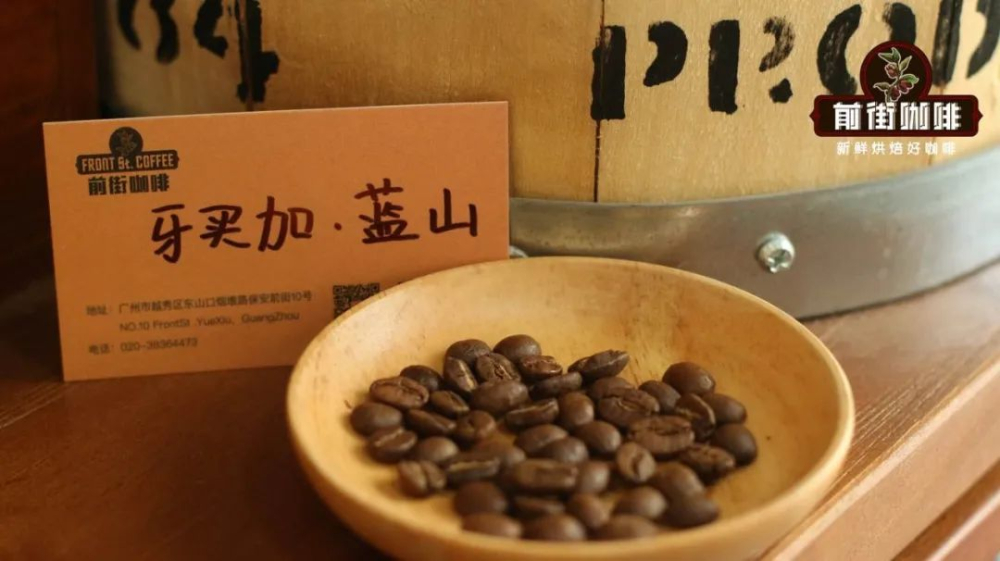
Blue Mountain Coffee was born in Jamaica, an island in the Caribbean
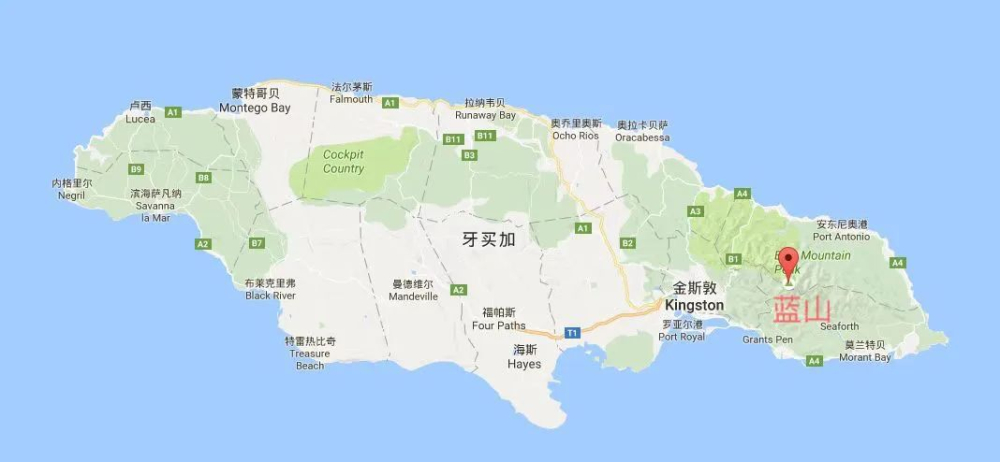
In the early 18th century, King Louis XIV of France received a coffee sapling brought by the Dutch from Indonesia and planted it in the back garden of Versailles. The well-taken care of coffee trees brought huge profits, so that one of them was taken to Martinique in the Caribbean, which will leave a strong impression in the history of the spread and development of coffee, because after that, most of the coffee grown in Central and South America originated in Martinique, and Blue Mountain Coffee is no exception!
In 1728, the Governor of Jamaica imported Arabica seeds from Martinique and popularized them in the St. Andrews area. At first, Jamaica mainly planted other crops, and coffee cultivation would have high taxes, so it could only be planted on a small scale. It was not until 1790 that the British government greatly reduced the tax on coffee, which made Jamaican coffee have great room for development, and large coffee plantations began to appear; in 1814, the huge amount of Jamaican coffee produced great economic benefits for the British.
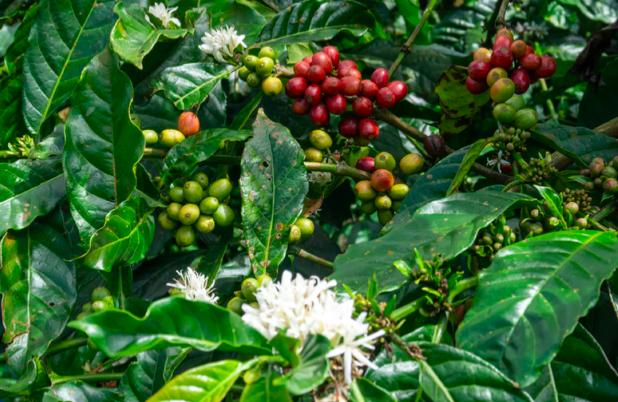
The good times did not last long, with the end of slavery in the Caribbean in 1838, almost all free farmers left the plantations, causing these large gardens to be sold or divided into plots of land for sale to local farmers. the production and quality of coffee began to decline sharply.
In 1948, the Jamaican government set up the Coffee Industry Management Office in order to change the depressed situation of local coffee. The establishment of the management office has not only improved the quality of coffee, but also opened up export business. In 1952, the management office was upgraded to the Jamaica Coffee Industry Association (CIB, full name Coffee Industry Board). At this point, Jamaica established the first country in the world to specifically regulate the coffee sector!
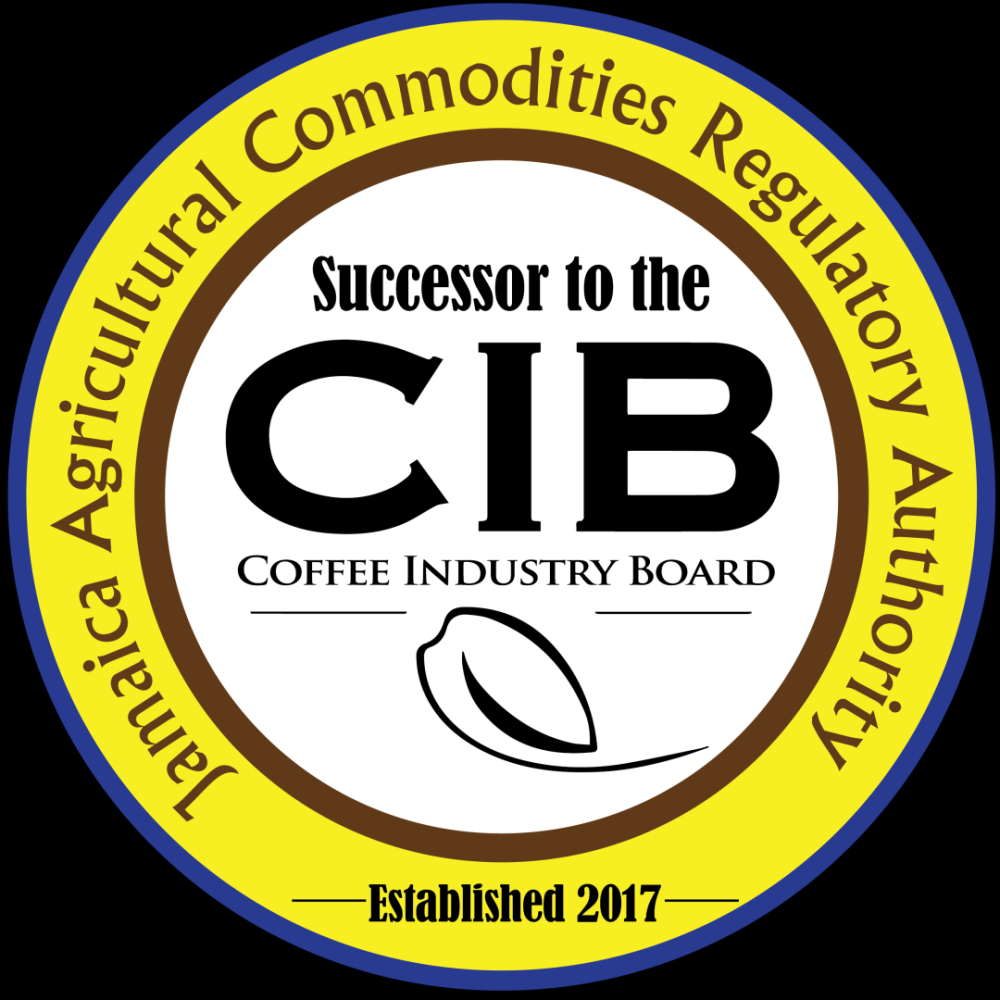
It is the emergence of CIB that has established the prestigious position of Blue Mountain Coffee in the international market. CIB has made a series of norms to ensure the quality of Blue Mountain Coffee:
1. Clearly define the production area: CIB has designated an area in the Blue Mountains where only coffee grown can be called "Blue Mountain Coffee" (this area is about 90-1700 meters above sea level). Those outside the division can only be sold in the name of Jamaican alpine coffee and Jamaican preferred coffee.

two。 Variety selection: due to the firm cultivation of Arabica species, the Jamaican iron pickup is pure and will not be disturbed by other varieties, which is why some people will call the iron pickup grown in Jamaica the Blue Mountain species.
3. Knowledge dissemination: coffee farmers are trained to grow coffee and protect the environment, including the use of manual picking of ripe coffee fruits and washing of coffee beans (because at that time, washing was the most advanced treatment process).
4. Strict quality control: raw beans are graded and divided into NO.1, NO.2, NO3, and PB; according to size and defect rate. Take Lanshan No. 1 as an example, the standard is to select coffee beans with a size of more than 17 mesh, and the defect rate is controlled below 3%.
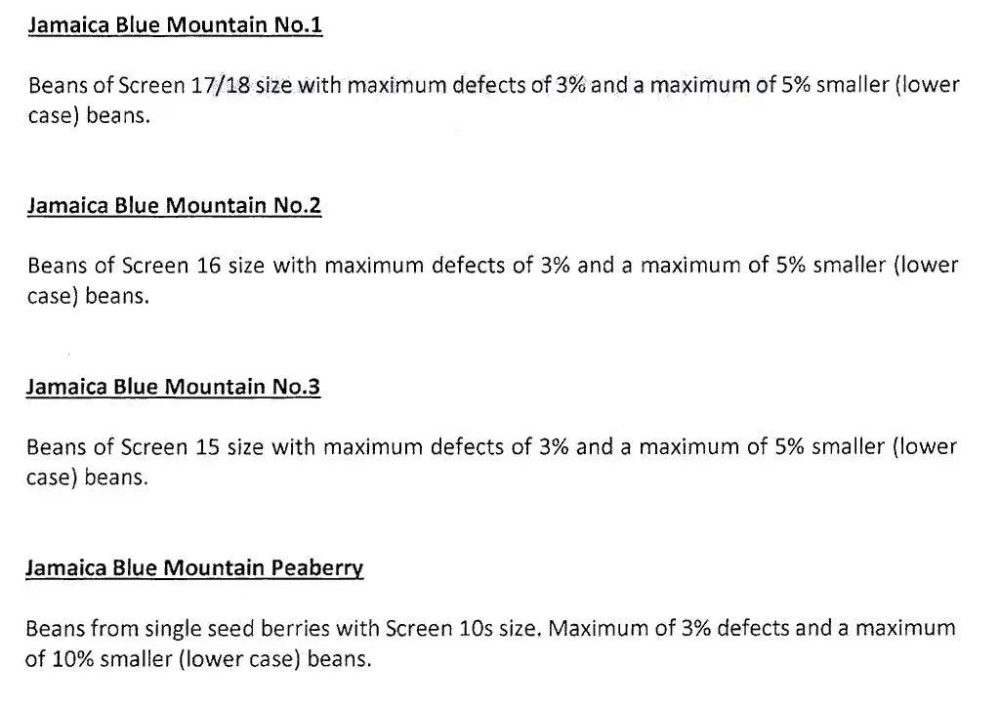
CIB is also the first organization in the world to use a cup meter to score coffee products, and the scoring items are what we use now: dry and wet aroma, acidity, flavor, alcohol thickness, cleanliness. Leading other cup scoring system for more than 20 years!
By 1980, Blue Mountain Coffee had become so popular around the world that its reputation was as high as that of some British and American retailers labeling non-Jamaican coffee as "Blue Mountain Coffee". To this end, CIB specially designed in 1984-1985, can only be affixed to the 100% label on the Jamaican Blue Mountain coffee bucket.
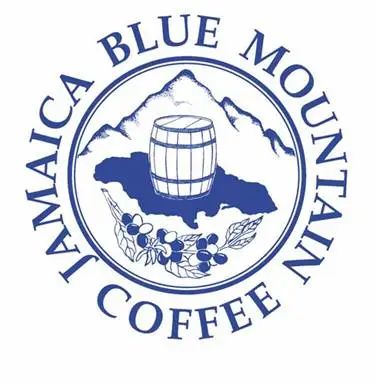
Blue Mountain Coffee is the only coffee in the world that is exported in wooden buckets. Although sacks are strong, durable and light, Jamaicans still want to be able to use hand-made buckets to hold these painstaking intentions. The barrel is also limited, only Jamaica Blue Mountain (No. 1, No. 2, No. 3, PB) and Jamaican Alpine (Alpine Top, Alpine PB) can be used. There are three specifications, 70kg, 30kg, 15kg, and grade, which are only enough to be packed in gunny bags. At the same time, it is also an index to distinguish between true and false blue mountains.
A green frog will be printed on the barrel in Jamaica, which is the symbol of the Rainforest Alliance, implying that the coffee bean is organic coffee beans grown in a pollution-free environment.
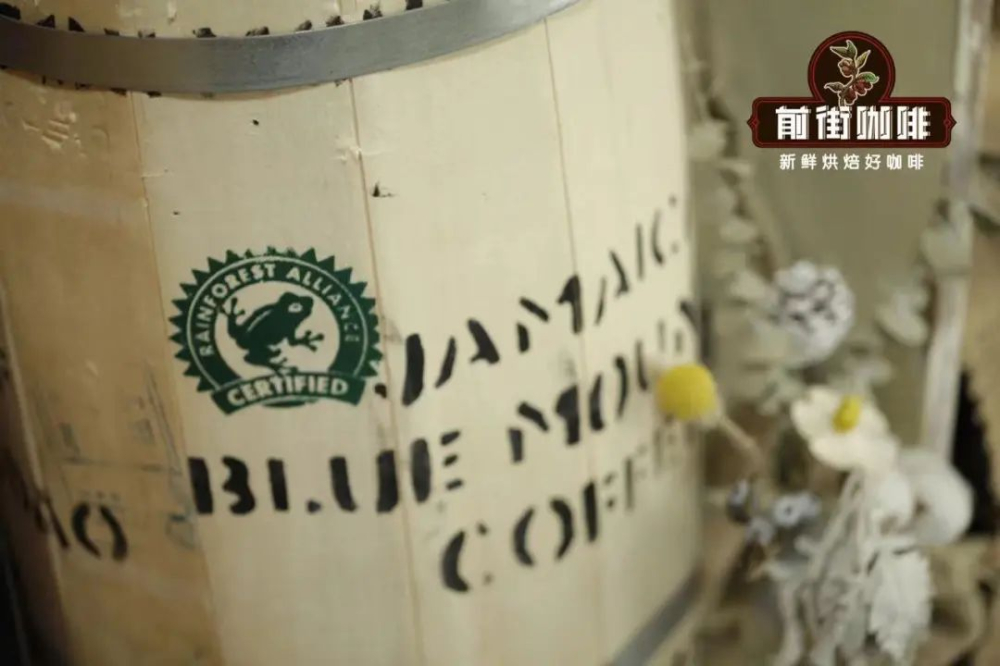
The upper part of the barrel will be printed with the manor, and the middle part will show the words G (gross weight), T (barrel weight) and N (net weight).
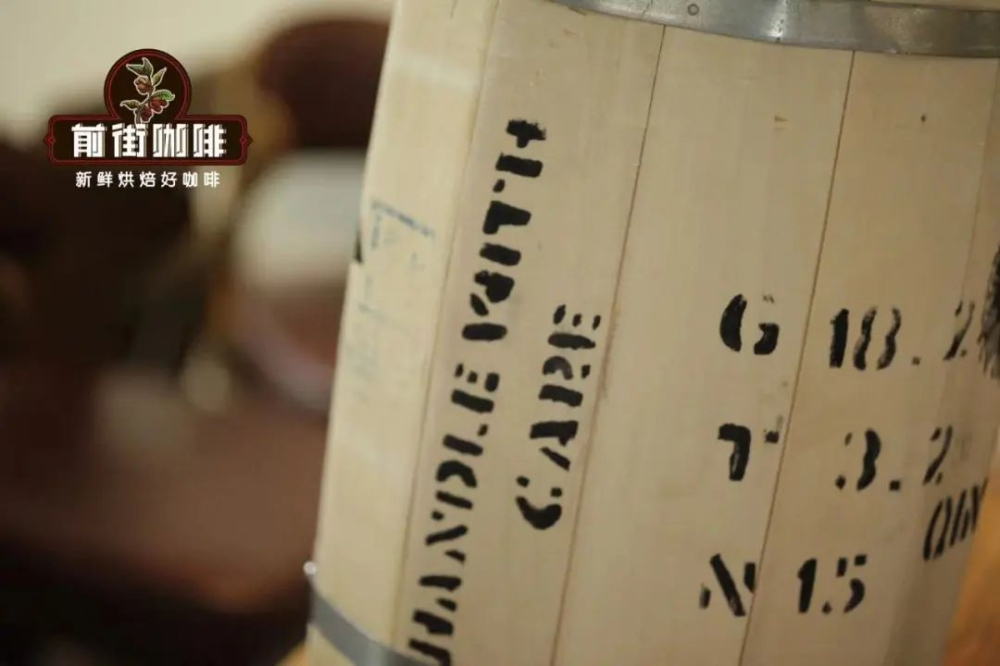
The lid is printed with a grade mark, and the lower part of the barrel is engraved with the Jamaican production logo and the unique ICO number.
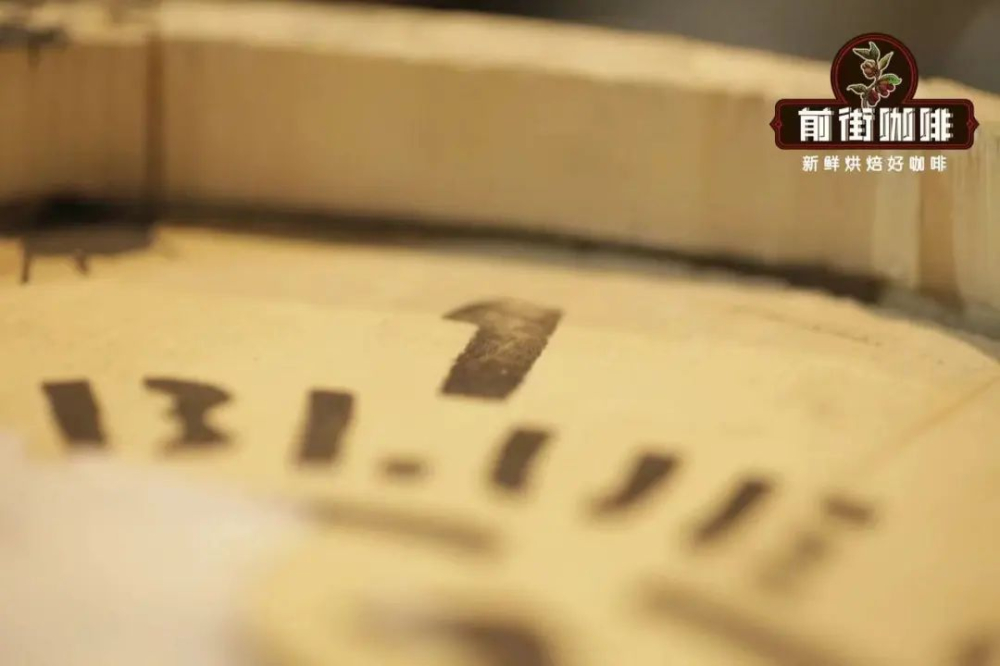
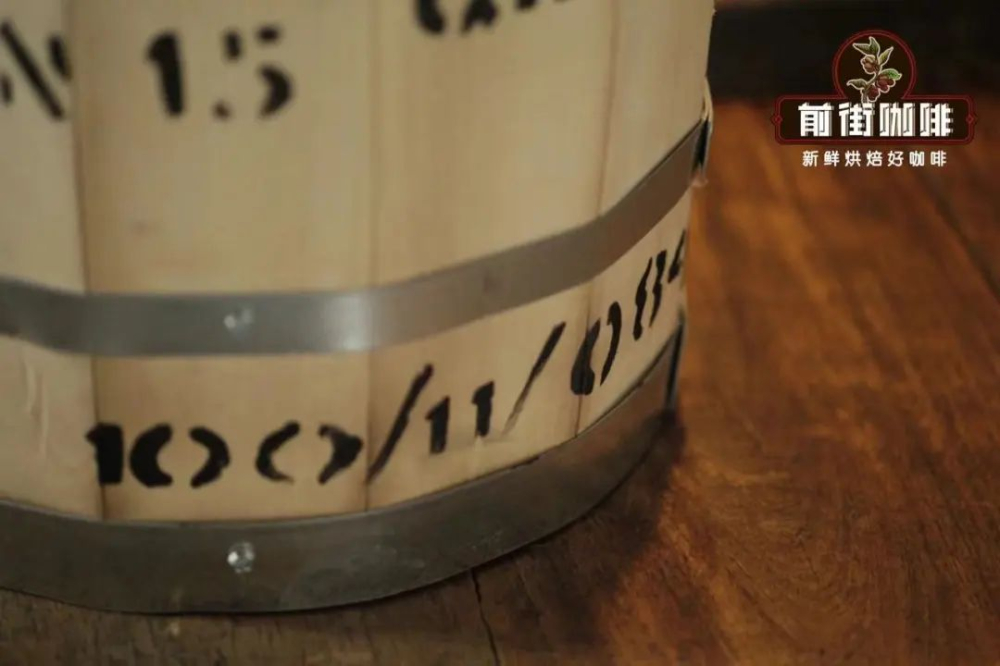
In addition, the production and distributors of Blue Mountain Coffee must be licensed by the Jamaican Government and authorized by the Jamaican National Coffee Bureau, and all locally exported Blue Mountain batches are also tested and certified by the coffee shop with its label. Therefore, we can ask the merchant to show the relevant Blue Mountain voucher to identify whether it is the true Blue Mountain.
Blue Mountain No. 1 coffee on Qianjie is produced by Clifton Manor and has a certificate of quality issued by Jamaica Coffee Bureau, an authorized sales certificate issued by Blue Mountain Coffee manufacturer, and a certificate of origin of Jamaican Blue Mountain Coffee.
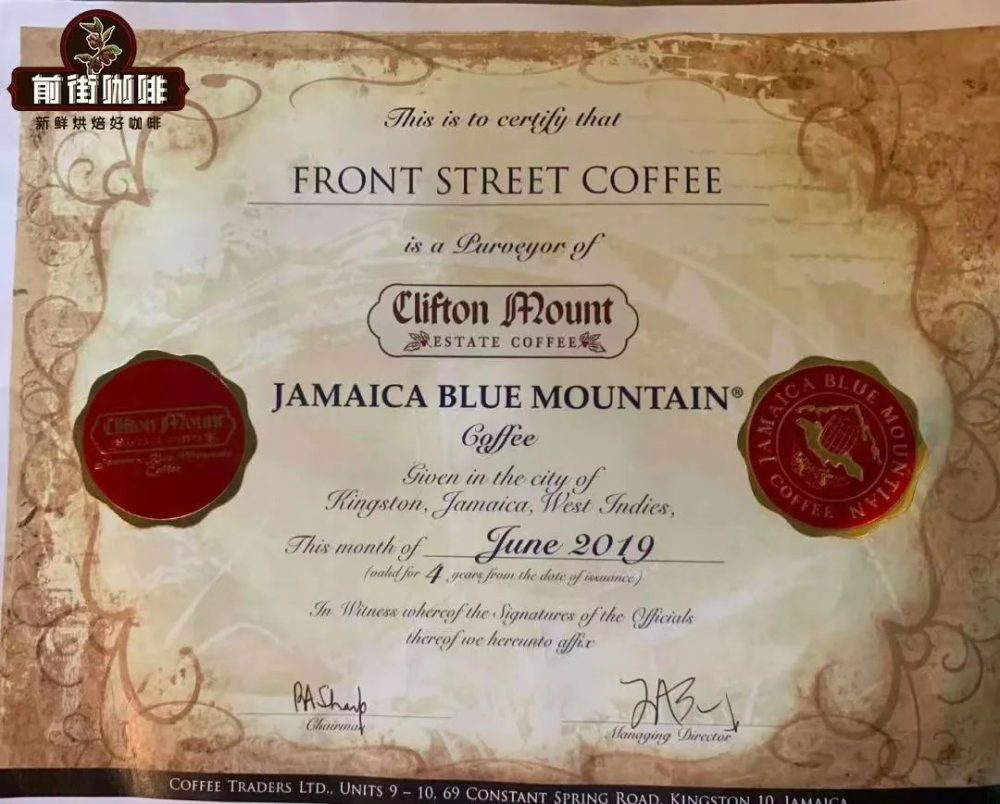
-END-
Front Street Cafe
No. 10 Baoqian street, Yandun road, Dongshankou, Yuexiu district, Guangzhou, Guangdong province
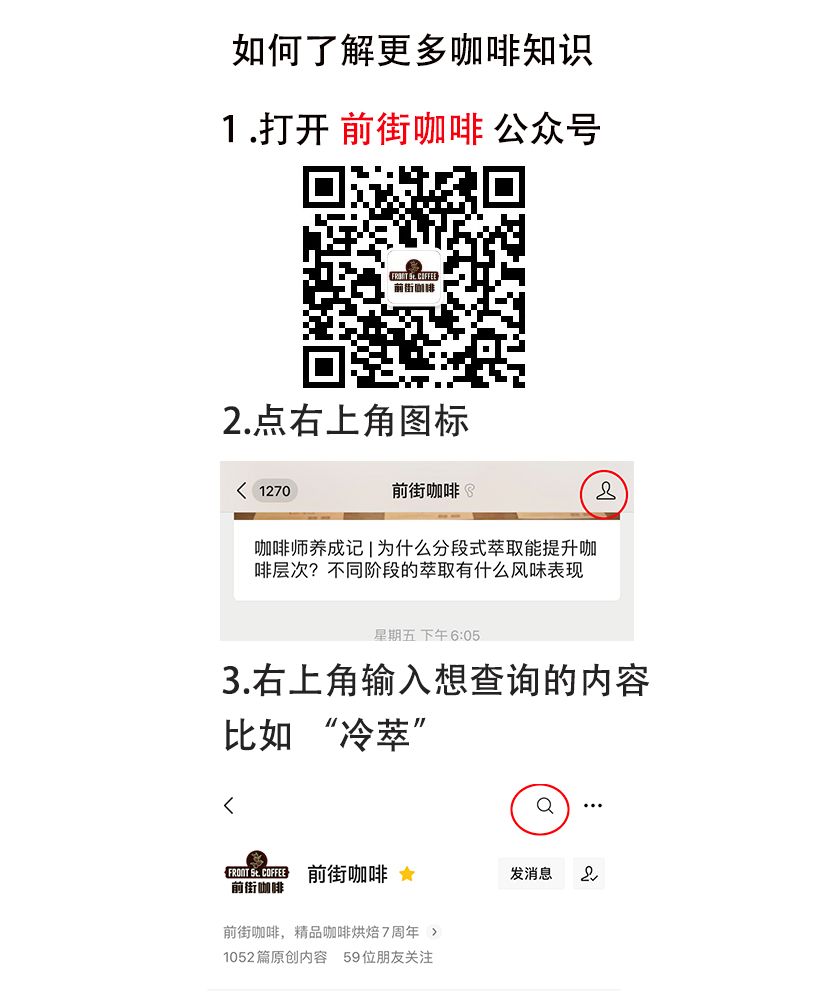
Important Notice :
前街咖啡 FrontStreet Coffee has moved to new addredd:
FrontStreet Coffee Address: 315,Donghua East Road,GuangZhou
Tel:020 38364473
- Prev

What is the flavor of coffee from the four major producing areas in Yunnan? Introduction to the characteristics of Katim Coffee varieties in Yunnan Province
"would you like to try our Yunnan beans-Qianjie 2013, these are the coffee beans we grow in Yunnan." This is the advice that baristas in front of the street will give when guests are faced with a blackboard bean list but don't know how to start. When some guests hear that these are Yunnan beans, their eyes will shine, and some curious guests will ask one more question. "
- Next

Why do you think of Rose Summer whenever you mention Panamanian coffee?
When talking to guests about rosy summer coffee in front of the street, people always think of the rosy summer in Panama first, and when it comes to Panamanian coffee, some friends even default to the rose summer breed. Why? It is obvious that there are so many places to grow rose summer all over the world, not only Panama, but also Ethiopia and Costa.
Related
- Detailed explanation of Jadeite planting Land in Panamanian Jadeite Manor introduction to the grading system of Jadeite competitive bidding, Red bid, Green bid and Rose Summer
- Story of Coffee planting in Brenka region of Costa Rica Stonehenge Manor anaerobic heavy honey treatment of flavor mouth
- What's on the barrel of Blue Mountain Coffee beans?
- Can American coffee also pull flowers? How to use hot American style to pull out a good-looking pattern?
- Can you make a cold extract with coffee beans? What is the right proportion for cold-extracted coffee formula?
- Indonesian PWN Gold Mandrine Coffee Origin Features Flavor How to Chong? Mandolin coffee is American.
- A brief introduction to the flavor characteristics of Brazilian yellow bourbon coffee beans
- What is the effect of different water quality on the flavor of cold-extracted coffee? What kind of water is best for brewing coffee?
- Why do you think of Rose Summer whenever you mention Panamanian coffee?
- Introduction to the characteristics of authentic blue mountain coffee bean producing areas? What is the CIB Coffee Authority in Jamaica?

